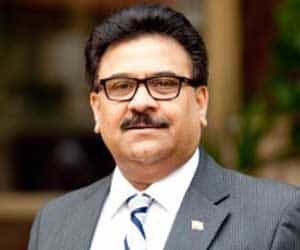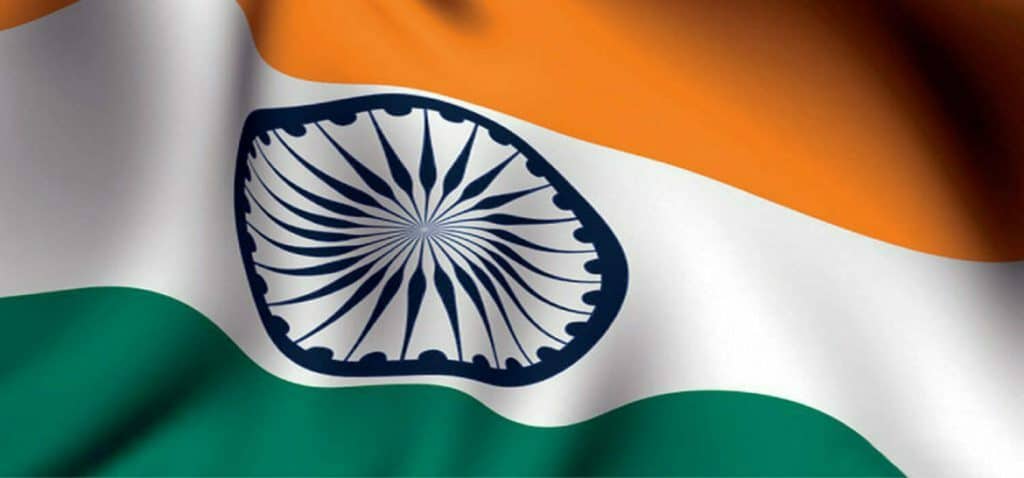World Geostratetegic Insights interview with Ambassador Rtn. Anil Trigunayat on the drivers of India’s foreign policy, the challenging relations with China and the partnership with Middle Eastern countries.

Amb. Rtn. Anil Trigunayat served as India’s Ambassador to Libya, Jordan, Malta. and as Deputy Chief of Mission with the rank of Ambassador in Moscow. He also served as Director General/Joint Secretary for the Gulf and Haj Divisions in the Indian Ministry of External Affairs. Currently he is the Chairman at the Confederation of Education Excellence and President of Millennial International India Chamber of Commerce Industry and Agriculture (MIICCIA).
– From non-alignment to multi-alignment, India’s primary quest has been the practice of strategic autonomy to protect and promote its national interests. The U.S. and EU countries hoped that India would align with Ukraine and against Russia, especially given New Delhi’s strong involvement in the Quad grouping of major democratic countries in the Indo-Pacific. But India has not done so. Moreover, when asked what India’s role is in a framework in which there will be two power camps led by the United States and China, Indian Foreign Minister Jaishankar disagreed with the idea that India should choose an axis with which to align: “I am one-fifth of the world’s population, I am today the fifth or sixth largest economy in the world, I mean, forget history, civilization, everybody knows that I think I have the right to have my own share” he said. According to the Foreign Policy magazine, by refusing to condemn Moscow and adhere to Western-led sanctions, President Modi has succeeded in elevating “India’s global status” with the likely goal of carving out a role for itself as an independent superpower. What is your opinion on the matter? Has the ongoing crisis in Ukraine put India’s foreign policy at a crossroads?
A: As you have rightly pointed out, India’s quest for strategic autonomy was inherent and indispensable in India’s foreign policy way before she achieved independence from the British. In the post World War II era India became the voice for the colonized and underdeveloped and led that mission from the front under the aegis of NAM . She did not want to become the part of the Cold War geo -politics and this policy served her well. Development was the main agenda at home.
Despite disagreements and disenchantment of both the Cold War adversaries New Delhi was able to garner increasing support, assistance and collaboration from all countries while it extended the capacity building assistance to developing countries under the aegis of South-South cooperation with ‘Share and Care’ approach. Being a founder member of the UN and multitude of other international organizations India stands for multipolarity and multilateralism even though Un has failed to live up to its expectations mainly due to the unilateral and irresponsible behavior of the veto wielding P5 countries .
Once again the transitional global order is at cross roads and we are witnessing the emergence of a far more insidious Cold War 2.0 where a new and alternative financial , economic and military architecture may emerge against the western dominated Bretton Woods , SWIFT controlled financial system. Eurasian war between Russia and the US via Ukraine has advanced the possibility. India took a principled stand for peace, dialogue and diplomacy and against hypocrisy .In such a situation, India being the fastest growing economy with 3rd or 4th largest GDP and largest democracy, market and population has a lot at stake. Like India, today many more rich and empowered countries from Asia to Africa to Americas want not to get caught in this geopolitical contestation yet again. Hence , I believe India is well placed to lead the Nations for Strategic Autonomy.
– For more than 60 years, India and China have been trying to have the upper hand in Asia, including over the disputed 3,488-kilometer Himalayan border. Thus, managing relations with China is likely to remain India’s main challenge in the coming year, considering that China is unlikely to cede any strategic space to India. How do you see relations between India and China evolving? Could Russia serve India’s strategic interests in relations with China?
A: In my view China will remain a major challenge for India. In the Indo Pacific we have threats both on land and the sea from our northern neighbor. India is not an India of the 1960s and can deal with it the way they would want to. It has carried on its relations with Beijing during the last over four decades in the “Competition and cooperation” matrix. But China plays zero sum game and wants India to be confined to only South Asia which is not possible for a country of India’s size and potential whose soft power has a uniquely beneficial impact across geographies. India’s strategic location and polity have made her desirable and a principled partner of choice for all the major powers who are threatened by the unbridled and hegemonistic rise of China or Sino-Russian axis.
India prefers peace with China but on equal and equitable terms. They cooperate in plurilateral formats like BRICS, RIC (Russia India China) and SCO (Shanghai Cooperation Organization) where Russia is a partner too. While Moscow and Beijing have strategic partnership with “no limits”, Russia understands the value of its special and privileged strategic partnership with India. In my view while Russia needs China against the western domination it needs India to counter China’s excessive influence in its backyard. No doubt there is a certain unique trustworthiness in relations between Moscow and Delhi at the government but more importantly at the people to people level, apart from the fact that India remains a major market and a partner for Russia despite the Indian efforts to diversify supplies be it in defence or other strategic sectors.
– On Sunday, June 5, India’s ruling BJP suspended its national spokesperson Nupur Sharma and expelled its Delhi spokesperson Naveen Kumar Jindal over comments they had made about Islam and the Prophet. The decision was made after three countries in the Gulf region summoned Indian ambassadors to their nations to voice their protest and demanded a public apology from India. Do you think this case is now over or can it still negatively affect India’s relations with Gulf and other Muslim countries? And in general, can allegations of Islamophobia impact or harm India’s foreign policy in the Middle East?
A: Well, what happened was unfortunate and should have never taken place as it hurt the sentiments of Muslims and was completely out of line. India understood this and took corrective measures while reiterating that she respects all religions and the Constitution guarantees that. No one has a right or should disrespect other religions .India has a unique distinction of being a spiritual land where all religions of the world have thrived and even Christianity and Islam came to India before these were adopted by their current constituents. India has excellent Islamic credentials despite the aberration in question. We can boast of being the only country in the world where minorities have risen to the topmost leadership positions from polity to economy to army to Science and technology to Bollywood. Muslims form nearly 1/10th of the global Muslim population and India hosts the second largest adherents of Islam in the world.
As far as India’s relations with West Asian countries are concerned they have been historic and civilizational and hence driven by mutual trust and affection. But I believe that during the past decade they have been converted from simply transactional to truly strategic and moved to a much higher trajectory. It is a mutually beneficial partnership. I also subscribe to the idea that India’s “Act West” policy has been a success story of PM Narendra Modi’s foreign policy. Therefore, the political leadership in these countries understood the action taken by the government and ruling party against the errant individuals. However, efforts have to be made to assuage the Arab street and the ordinary Muslims who could get carried away by the fundamentalist and extremist groups using social media to the hilt to propagate their nefarious agenda in the name of Islam. Moreover, countries like Pakistan (masters in cross border terrorism ), who have found an opportunity to hit back at India even as Islamabad itself remains the biggest violator of rights of minorities, try to take advantage of the situation.
I do think that the mutually beneficial and sustaining relationship between India and the Middle Eastern countries will continue apace as India ensures that such incidents don’t recur.
Ambassador Rtn. Anil Trigunayat is a member of the Indian Foreign Service. He has served in the Indian Missions in Cote d’Ivoire, Bangladesh, Mongolia, USA, Russia, Sweden and Nigeria, Libya, Malta and Jordan. In the Ministry of External Affairs he worked in the Economic, West Asia and North Africa, Gulf and Consular Divisions.
He was India’s Ambassador to Libya, Jordan, Malta. and Deputy Chief of Mission with the rank of Ambassador in Moscow. He also served as Director General/Joint Secretary for the Gulf and Haj Divisions in the Indian Ministry of External Affairs.
He is a post Graduate in Physics from the Agra/Kumaon University and also studied Russian History, Culture and Language at the Jawaharlal Nehru University, New Delhi. As a visiting fellow he conducted research work on “WTO and Regional Trading Blocs” at the Oxford University.
Presently he is the President of Millenian International India Chamber of Commerce, Industry and Agriculture (MIICCIA), Independent Director of WAPCOS, a Global Leader in Consultancy and Engineering, (www.wapcos.gov.in), Non-Executive Chairman of Atmanirbhar Global Chamber Of Commerce And Industry (www.agcciindia.com), Patron of ,Indus International Research Foundation (www.indusresearch.in), Chairman of the Confederation of Educational Excellence, Secretary of the Association of Indian Diplomats (Former Ambassadors), Chair Advisory of the Council of the India-Italy Chamber of Commerce and Industry (www.indiaitaly.com), Distinguished Fellow Vivekananda International Foundation (www.vifindia.org), Member of the Governing Council Raisina House and Usanas Foundation and India-Japan Foundation, Adviser of the National Cooperatives Development Corporation (www.ncdc.in), Adviser of the Asia Africa Chamber of Commerce/BRICS Chamber of Commerce and Industry, Adviser of GD Goenka University, School of Management.







